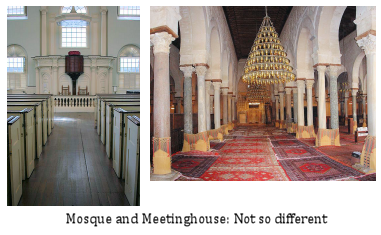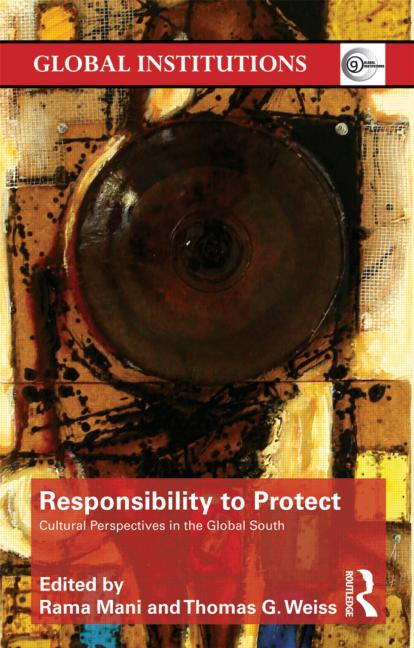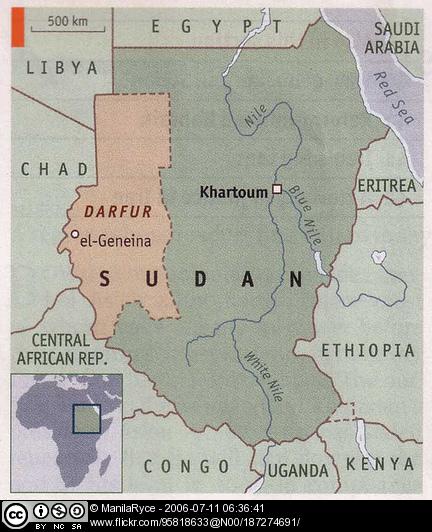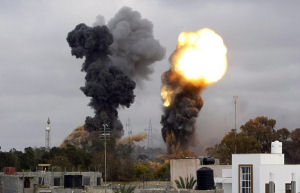
Many Trails to Freedom: Islamic Democracy is not an Oxymoron
“I disapprove of what you say, but I will defend to the death your right to say it.” – Voltaire. Over Christmas I visited Boston and had the occasion to walk the famous freedom trail: 3 miles of sights commemorating American independence. As I walked this hallowed ground I pondered on those fighting for freedom today, in the streets of Cairo, Homs and Tunis. Having met some of these people, I wondered at the suspicion we direct at the Islamic parties now gaining power, as if we forgot our own history. American democracy was born of Puritan principles of self-government, but that did not prevent it from evolving into the (more or less) secular body it is today. Ignoring this …

On ‘Responsibility to Protect: Cultural Perspectives in the Global South’
At the 2005 UN World Summit, more than 170 Heads of State and Government accepted three interlinked responsibilities, which together constitute the principle of ‘responsibility to protect’ (R2P). First, States accepted the responsibility to protect their own populations from genocide, war crimes, ethnic cleansing and crimes against humanity. Second, States promised to assist each other in fulfilling their domestic protection responsibilities. And third, the international community took on a collective responsibility to react, in a timely and decisive manner, if particular States are manifestly failing to protect their populations from the abovementioned mass atrocity crimes. Despite a quite remarkable normative development (see for example the frequent invocation of R2P in relation to the recent Libya crisis), this R2P principle is …

Cameron taking UK out of Europe without a referendum?
When the ‘make or break’ summit to save the euro finished in Brussels on Friday afternoon, David Cameron headed rapidly for the exit without the traditional end of summit press conference (making do, unusually, with only an interim pre-dawn one as the leaders stumbled out from their almost ten hours overnight talks for a short break before breakfast). As the dust settles from this critical summit, the gap between the UK and other European countries has never been wider, nor the UK’s influence closer to zero. As Tory sceptics applaud what any sane observer would call a major foreign policy disaster, could it be that Cameron is in the process of taking the UK out of the EU without a …

China and India in Sudan: an Uncertain Relationship
On June 21, at the Manor Road Building, Oxford University, Daniel Large and Luke Patey discussed the role of China and India in Sudan’s oil sector. This industry is of particular interest today, as on the 9th of July the country will split into Northern Sudan and Southern Sudan. The recent border clashes illustrate the lack of agreement between the two sides about the sharing of oil revenues. The two speakers situate this issue within an international context by contrasting the involvement of China and India and discussing the long-term prospects of Sudan’s oil industry, among other interesting questions. China’s involvement in Africa has become a hot topic in media and political discussions. This has concealed that of other Asian …

Which Entity is the Government of Libya and Why does it Matter?
In the past couple of days, Germany and Canada have joined the group of countries that have declared that they consider the National Transitional Council (NTC) in to be the “legitimate representative” of the Libyan people. But what exactly does this mean? According to the BBC, the group of countries extending this recognition includes France, the UK, Italy, Spain, Germany, the UAE, Qatar, Jordan, Gambia, Senegal and Australia. Russia and the United States have had meetings with the NTC and have also made similar declarations about the illegitimacy of the Gaddafi regime and about the legitimacy of the NTC (see previous post by Stefan Talmon on the US position in March). What are the legal implications, if any, of these …
History Repeating? Cairo 2011 and the lessons from Tehran 1978
While again hundred thousands of Egyptians show their defiance of the old regime at Cairo’s Tahrir Square and worker protests have broken out in several Egyptian cities, Washington and London still follow a pipe dream of a gradual transition from Hosni Mubarak to a more or less democratic, yet by all means secular new government. However, the web of Western diplomatic moves might turn into a Gordian knot as Egypt 2011 shows analogies to Tehran in 1978. Nations resemble Tolstoy’s families: every one is unhappy in its own way. And yet, when people’s harm escalates and they take matters in their own hands, the differences fade and clear patterns emerge. One such pattern stipulates that revolutions are rarely isolated instances …
The Giffords Shooting, the Making of Jared Loughner, and the Danger of Political Rhetoric
Two seemingly unrelated events from last Sunday night: the shooting of Congresswoman Giffords and Derren Brown’s The Heist was on TV in the UK. Let me tie them together. First, for those who aren’t familiar with Derren Brown, he is a brilliant magician, illusionist, hypnotist, and “mind reader”. If you watch his shows, you’ll see that he is a master of psychological techniques. On The Heist, the show that I watched last night, he did something quite extraordinary: he got three middle-class professionals to commit armed robbery– voluntarily. Well, a simulation of an armed robbery anyway. If you haven’t seen Derren Brown, you’re probably thinking that he used actors or accomplices. I don’t think that this was the case. They were …
Media interest in climate change takes a dive
A year can be a very long time in the life of media interest. In December 2009, I was one of more than 4,000 journalists who attended the UN’s Copenhagen summit on climate change – probably the largest press presence for an international event outside of sport. The journalists came from 119 countries, and suffered the freezing temperatures and disappointing results. It wasn’t just the Western press who were there. Emerging powers like Brazil and China both had more than 100 journalists. (see the RISJ report at http://reutersinstitute.politics.ox.ac.uk/publications/risj-challenges/summoned-by-science.html) One year on, and the next major summit at the Mexican resort of Cancun was much less of an attraction – despite the beaches, tequila and abundance of sun. This time, around …









